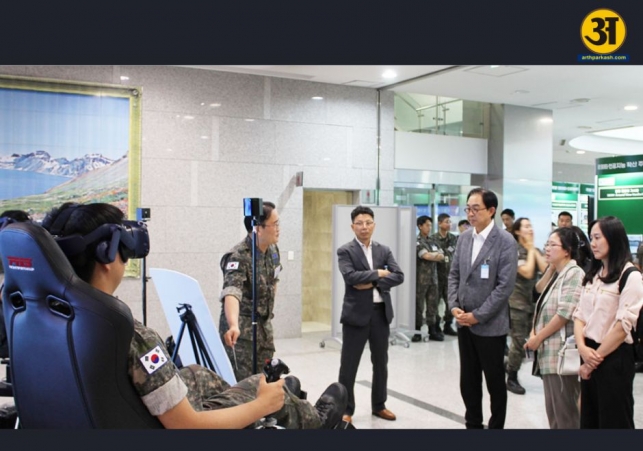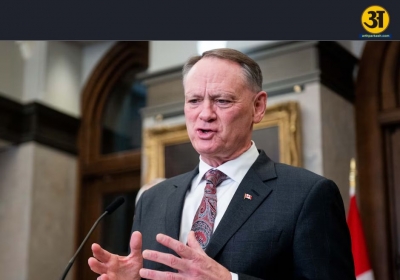
South Korea plans AI Blueprint for Military
South Korea Summit aims to create 'Blueprint' for AI Integration in Military
- By Gurmehar --
- Monday, 09 Sep, 2024
South Korea is hosting an international summit in Seoul to create a blueprint for using artificial intelligence (AI) in the military. The two-day event, which starts on Monday, involves over 90 countries, including representatives from the United States and China. This summit follows a similar gathering in Amsterdam last year, where nations agreed on a non-binding "call to action."
South Korean Defence Minister Kim Yong-hyun highlighted the role of AI in modern warfare, citing a Ukrainian drone as an example of how technology can provide a strategic advantage. However, he also warned of the risks, noting that AI in the military can be a "double-edged sword" with potential for misuse.
Summit goals and challenges
The summit aims to establish guidelines for responsible AI use in the military. Discussions will focus on ensuring compliance with international law and preventing autonomous weapons from making critical decisions without human oversight. The goal is to set basic standards and suggest responsible practices based on principles from NATO and other countries.
ALSO READ: Bangladesh Government pledges action to extradite Former PM Sheikh Hasina from India
ALSO READ: Super Typhoon Yagi strikes Vietnam, leaving destruction in its wake; 1 confirmed dead
The outcome of the summit is uncertain, with no binding commitments expected. The event is part of broader international efforts to address AI in military contexts. The UN's 1983 Convention on Certain Conventional Weapons is also exploring restrictions on lethal autonomous weapons, and the U.S. launched a declaration last year on the responsible use of AI in the military, which 55 countries have endorsed.
Co-hosted by the Netherlands, Singapore, Kenya, and the UK, the Seoul summit includes around 2,000 participants, including representatives from international organizations, academia, and the private sector. Topics for discussion include civilian protection and AI's role in controlling nuclear weapons.





